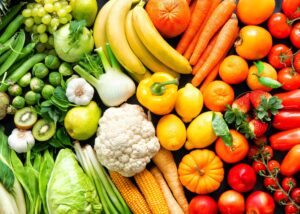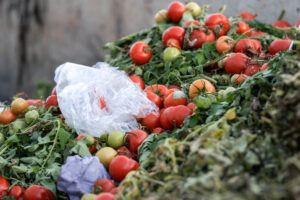May 22, 2023
The Farm Bill reauthorization presents many opportunities to reduce wasted food and preserve our country’s vast agricultural resources. Many fantastic initiatives have been proposed by some of the nation’s most influential climate and food waste NGOs, such as ReFED, the WWF, NRDC, and Harvard Law School’s Food Law & Policy Clinic. These organizations have been focused on reducing wasted food for years and their most recent policy report titled “Opportunities to Reduce Food Waste in the 2023 Farm Bill”, did a tremendous job highlighting how simple policy steps can be taken to open up a tremendous amount of innovation and investment in this arena.
There are eight recommendations from the original report that we feel would go the farthest to reduce the negative impacts of wasted food. Our commentary on these recommendations, which we encourage legislators to implement into the 2023 Farm Bill, are detailed below. These changes will accelerate efforts to prevent wasted food, provide edible food to communities in need, reduce emissions and power communities with renewable energy.
Provide Financial Incentives to Businesses for the Adoption of Technology that Reduce Food Waste by at least 10%
Divert is supportive of the creation of a federal tax incentive for the commercial adoption of post-harvest food waste waste reduction technologies. Congress would direct agencies to maintain a list of eligible technologies that demonstrate a 10% reduction in food waste. As roughly 42% of food waste results from inefficiencies in the food supply and food management chain by the manufacturing, retail, and food service sectors, this incentive will help to create access to important, but costly technologies to help address wasted food.1 This increased access can help scale deployment of beneficial technologies similar to those that Divert is working to deploy with retailers and community partners. This will create a more robust market for innovative technologies which will expand the work that Congress and the Administration is furthering with the passage of the Inflation Reduction Act.
Launch a National Wasted Food Awareness Campaign
Public awareness of the wasted food problem is growing. That is evident in the expanding number of food technology-focused companies, the increasing public discussion around the topic, and expanding investments in the space. Divert’s technology solutions are critical to building awareness through measurement and actionable data, providing visibility into where and why food is being wasted and how we can change behavior. But, we need to come together nationwide to continue to accelerate that awareness to truly be able to have an impact on the crisis and mitigate the impact of climate change on our next generation.
Congress should include an authorization for the USDA and US EPA to launch a national food waste education and awareness campaign in the 2023 Farm Bill. The initiative should appropriate $7 million annually through 2030 with $3 million for research into effective consumer food waste reduction strategies and $4 million into consumer behavior change campaigns. American consumers waste an estimated 30 million tons of food annually, making up 37.2% of the food that goes to waste.2 By authorizing and funding this consumer-focused campaign, Congress would be directly authorizing an opportunity to potentially divert 1.38 million tons of food waste, reduce 7.41 million metric tons of CO2e, and save 281 billion gallons of water, with a net financial benefit of $6.08 billion annually.3
Increase Funding Support for Food Recovery Infrastructure
Divert is recommending that Congress increase funding for food recovery infrastructure, either through investments made in the 2023 Farm Bill or by making the Covid-19 response investments permanent. Currently, the costs and logistical challenges of preparing, processing, and transporting food for donation make it financially difficult for many food producers and vendors to donate surplus food.4 By codifying investment in this area, Congress will be assisting the food recovery organizations Divert partners with. These organizations often have limited resources to reinvest in their food recovery operations which can heavily impact their ability to accept all food donations or expand operations to new donors or areas.
Expand Federal Tax Incentives for Food Donation
Divert is supportive of the recommendation that Congress create an alternative food donation tax credit that farmers can opt to claim instead of the enhanced tax deduction. The 2023 Farm Bill should also amend the current enhanced deduction to offset the underlying costs donors can incur while donating food, such as transportation and storage. Additionally, Congress should remove the requirement that non-profit organizations provide donated food for free. By doing so, Congress can help to offset some donation costs to make the process more financially feasible for organizations to participate in donation efforts voluntarily or assist those that are mandated to under newly implemented waste reduction initiatives.
Provide Grants to Support Proven State and Local Policies that Reduce Food Waste Disposed in Landfills or Incinerators
With the 2023 Farm Bill, Congress has the opportunities to provide needed funding through the form of grants to state and local governments and to public-private partnerships that encourage the implementation of proven or promising food waste reduction policies, including organic waste bans, mandatory recycling laws, landfill taxes, Pay-As-You-Throw laws, and other policy measures. The bill should provide $650 million a year for ten years as part of this grant initiative, which will help to alleviate the amount of wasted food sent to landfill, which releases harmful greenhouse gasses upon decomposition, including methane, which is eighty times more potent than CO2 in the short term and twenty-five times more potent than CO2 overall.5
Provide Grants and Loans for the Development of Organic Waste Processing Infrastructure
Divert is encouraging Congress to utilize the 2023 Farm Bill to expand upon existing grant programs and adopt new strategies to develop anaerobic digestion infrastructure. According to ReFED, $14 Billion in annual investment is necessary to revamp how the federal food system prevents food from going to waste and projects that $1.2 billion of this necessary investment should come from government grants and project financing.6 By providing this funding, Congress will directly be supporting new infrastructure for facilities similar to those that Divert operates. This new capacity is needed to process the amount of organic material made available for productive use thanks to newly implemented organic waste bans, zero waste goals, and waste prevention plans across the country.
Provide Funding for the Federal Interagency Food Loss and Waste Collaboration
The 2023 Farm Bill should authorize the Federal Interagency Food Loss and Waste Collaboration (the Collaboration) by creating an explicit mandate for the Collaboration in the bill. Congress should additionally authorize $2 million in annual funding to better position the Collaboration to help the United States meet its 2030 food waste reduction goal of reducing food loss and waste by 50%. Federal Interagency collaboration will be necessary to organize industry stakeholders dedicated to ensuring that the federal food system is revamped in a holistic and meaningful manner that effectively reduces wasted food, increases donatable food opportunities, and reduces the impact of greenhouse gas emissions.
Implement a Certification Program for Businesses that Demonstrate Food Waste Reduction
The 2023 Farm Bill should authorize the creation of a food waste reduction certification program that highlights businesses working to prevent or otherwise reduce wasted food. This certification program will help consumers make informed purchasing decisions by prioritizing purchases from businesses with good food waste reduction practices. By allowing consumers to prioritize these businesses, consumer-facing businesses will be further incentivized to reduce the amount of waste they are producing, which currently accounts for 28% of the United States’ total food waste.7
- ReFED Insights Engine: Food Waste Monitor, supra note 2.
- ReFED Insights Engine: Food Waste Monitor, supra note 2.
- ReFed Insights Engine Solutions Database: Consumer Education Campaigns, rEFEd, https://insights-engine.refed.org/solution-database/consumer-education-campaigns.
- See Community Solutions Act of 2001: Hearing on H.R. 7 Before the Subcomm. on Human Res. & the Subcomm. on Select Revenue Measures of the H. Comm. on Ways & Means, 107th Cong. 98, 100–01 (2001) (statement of Bill Reighard, President, Food Donation Connection) (discussing the steps that must be taken in order to prepare food for donation).
- Global Methane Initiative: Importance of Methane, EPA, https://www.epa.gov/gmi/importance-methane#:~:text=Methane%20is%20 more%20than%2025,due%20to%20human%2Drelated%20activities (last visited Mar. 31, 2022) [https://perma.cc/3KSJ-VUX4]; Reduce Methane Pollution and Leaks, NRDC, https://www.nrdc.org/issues/reduce-methane-pollution-and-leaks (last visited Mar. 31, 2022) [https://perma.cc/LRZ5-LUGX]; see also Chad Frischmann, Opinion: The climate impact of the food in the back of your fridge, Wash. post Worldpost (July 31, 2018), https://www.washingtonpost.com/news/theworldpost/wp/2018/07/31/food-waste/
- ReFED Roadmap to 2030 At-a-Glance, supra note 12 at 5, 10.
- ReFED roadmap to 2030 at-a-glance, supra note 12.



